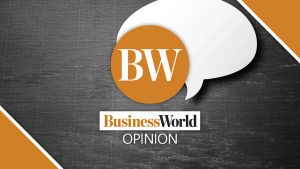DBM clarifies PhilHealth issue
We, in the Department of Budget and Management (DBM), respectfully write to respond to Mr. Juan Antonio Perez III’s “Yellow Pad” column titled, “Patronage politics has caused the loss of health insurance coverage for millions of Filipinos,” which was published in the BusinessWorld on Sept. 9, 2024. We wish to shed light on the comments […]

We, in the Department of Budget and Management (DBM), respectfully write to respond to Mr. Juan Antonio Perez III’s “Yellow Pad” column titled, “Patronage politics has caused the loss of health insurance coverage for millions of Filipinos,” which was published in the BusinessWorld on Sept. 9, 2024.
We wish to shed light on the comments which Mr. Perez raised, in the interest of accuracy and balanced views to avoid unnecessary alarm to the public, perpetuated by false, fear-mongering, and misleading news reports such as this.
Thus, we wish to clarify the following inaccurate details in the said column:
1. “To make things worse, PhilHealth’s budget for premiums was reduced by 50%, leaving at least 11 million indirect members and 18 million dependents without health coverage this year.”
“PhilHealth’s budget for premiums was reduced by 50%” — If this pertains to 2024 (“this year”), the 2024 General Appropriations Act (GAA) budget for PhilHealth is P61.5 billion, of which P40.3 billion is for the premium of indirect contributors. Compared to FY 2023 GAA, the PhilHealth budget was P100.2 billion, of which P79 billion is for the premium subsidy for indirect contributors. As in the FY 2023 GAA, the PhilHealth’s budget in the FY 2024 National Expenditure Program (NEP) for premium subsidy was the same as that of the FY 2023. However, there was a reduction made by Congress, as can be gleaned from the FY 2024 NEP vs. FY 2024 GAA.
“…leaving at least 11 million indirect members and 18 million dependents without health coverage this year” — It may be pointed out that the PhilHealth already issued a press statement that clarifies that all Filipinos, being automatic members of the National Health Insurance Program, are assured of immediate eligibility to their health insurance benefits anytime they are in need of medical treatment at any accredited health facility in the country. This is clearly mandated in Sections 5 and 6 of the Universal Health Care (UHC) Act of 2019, regardless of the level of appropriation that the Congress provides to the program every year.
2. “For 2025, DBM must explain why it has recommended a reduction of indirect contributors from 25,229,037 to 14,157,910. The slide included here clearly shows a reduced member count. This effectively removes 10,981,036 indirect contributors. With an average of two dependents per indirect member, that will mean over 30 million Filipinos without health insurance coverage next year.”
Allow us to note that the computation shown is the difference between the PhilHealth’s proposal and the FY 2025 NEP. Thus, the DBM did not reduce the number of beneficiaries but rather was only able to consider the coverage of a certain number of beneficiaries given the level of subsidy that could be provided to PhilHealth. Nevertheless, as rightly pointed out by PhilHealth, no one will be left without coverage because it is mandated to automatically provide coverage to all Filipinos. Additionally, there is a budget provision for the point of service program for those indirect contributors that are not yet clearly identified.
In the same article, the said author also wrote:
3. “DBM has also recommended a premium of P3,000 for the poor individual covered by the 4Ps (Pamilyang Pilipino Pantawid Program) and P5,000 for each senior citizen in 2025, which is below the P6,000 annual premium to retain membership. This will reduce coverage to only six months for 4Ps and 10 months for senior citizens. This could actually lead to even lower coverage for 4Ps members and seniors compared to 2024.”
This statement is utterly erroneous and deceptive since the basis used by the author is the PhilHealth data. The DBM already provided P5,000 premium rate for all indirect contributors in 2025. This premium rate is already 4.17% of the income floor of P10,000 of direct contributors. Moreover, this amount is aligned with the UHC law which provides that there should be a gradual increase in the premium subsidy. We would like to emphasize that the amount of P6,000 is the proposed rate of PhilHealth and not a condition to retain membership.
“This will reduce coverage to only six months for 4Ps and 10 months for senior citizens. This could actually lead to even lower coverage for 4Ps members and seniors compared to 2024.” — This is a false assumption because there is no such thing as a coverage of only six months and this can be confirmed by the PhilHealth. The premium subsidy provided by the national government is for the full-year coverage of indirect contributors. Without sounding like a broken record, there will be NO lower coverage for indirect contributors, as reassured by PhilHealth.
4. “No one can predict who will need healthcare at any given time, which is why universal coverage is essential. The fact that only 15% of indirect members made claims in 2022 should not be used as a justification to deny coverage to everyone, particularly the poor and elderly. In a year, public health planners usually presume that 20% of the population will get sick, and 5% may require hospitalization. By proposing to cover with inadequate coverage only 14 million indirect members in 2025, has the DBM pre-determined who will get sick next year?”
This is a logical fallacy.
While it is understandable to be concerned about reduced coverage, it is more important to avoid making assumptions about the intent behind such decisions. Those who will get sick are obviously unpredictable. Coverage for indirect members based on estimates, rather than actual numbers, is likely based on budgetary policies, as well as constraints, and the need to allocate limited resources. This does not imply a deliberate targeting of specific individuals. Moreover, PhilHealth is mandated to cover all Filipinos, thus, indirect contributors, in addition to those that have already been provided with premium subsidy, may be covered by PhilHealth using the Point of Service provision. Furthermore, Section 37 of the UHC Act provides that the Department of Health (DoH), in coordination with PhilHealth, may request Congress to appropriate supplemental funding to meet targeted milestones, which could include additional funding to meet targeted milestones of the said Act. Should there be a need for funding, this provision may be invoked by the DoH. We hope this letter clears up the misleading column.
Hence, we would like to request BusinessWorld to publish the DBM’s response in the spirit of transparency and fairness.
Nevertheless, rest assured that the DBM continues to hold the BusinessWorld in high esteem as a pillar of responsible journalism. We are certain that we share the same belief that accuracy is paramount; our reports shape public perception and influence critical decisions. Failing to present correct information can have far-reaching consequences, undermining not only our credibility but also the very fabric of informed discourse.
Thank you very much and more power.
Very truly yours,
Goddes Hope O. Libiran
Undersecretary and Supervising Senior Official
DBM Media Affairs and Community Relations Office























